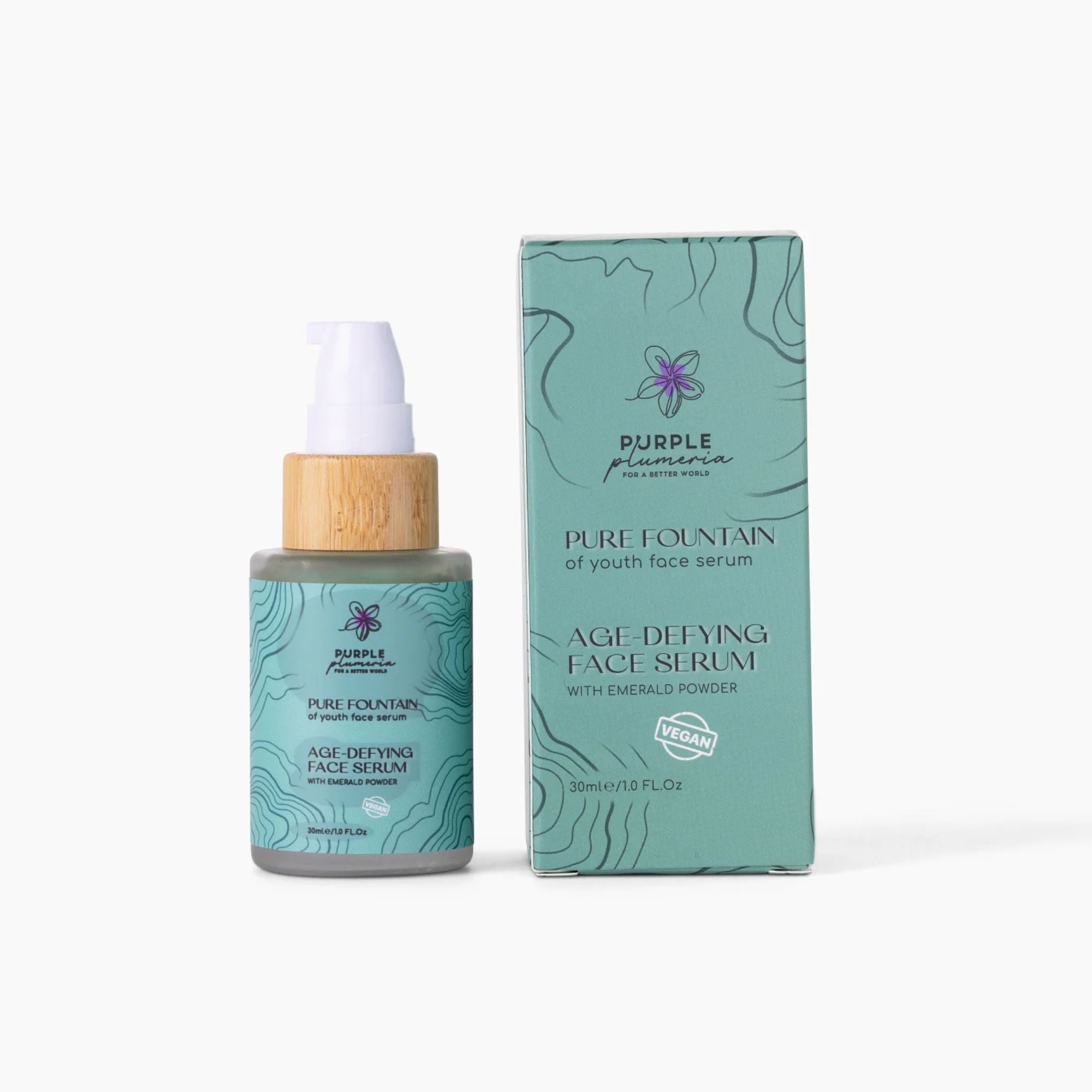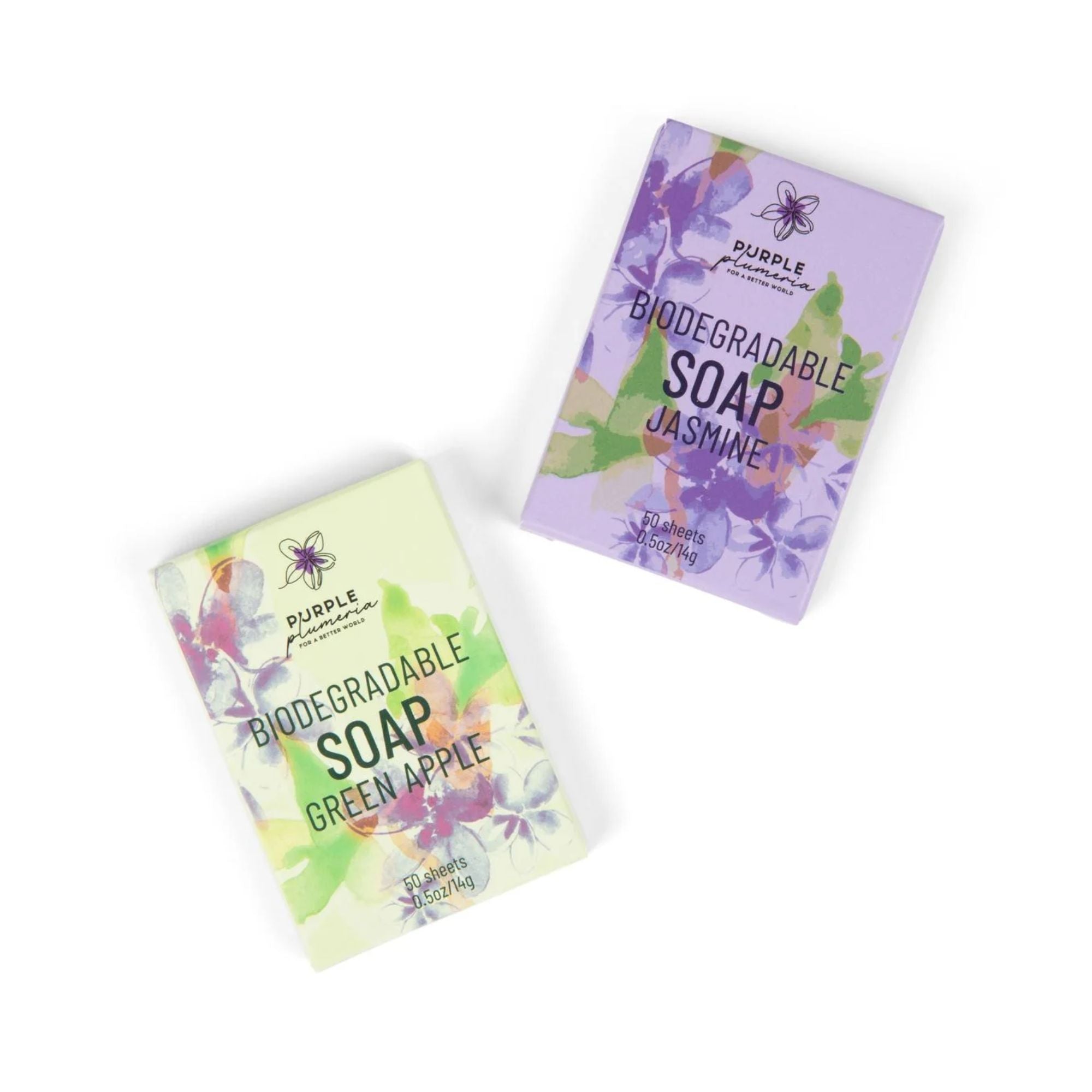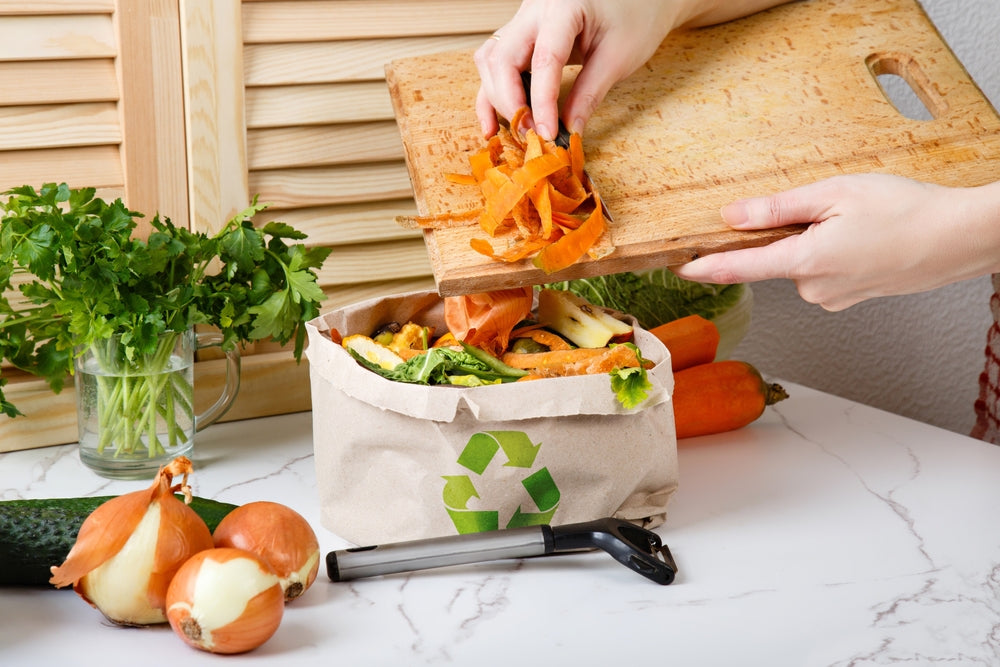Food waste is a big problem, not just for the environment but for your wallet too. It’s estimated that around one-third of all food produced globally goes to waste. So, knowing how to reduce food waste in your kitchen can have a significant impact.
It’s not just about cutting costs; it’s about creating a sustainable routine that makes the most of what you already have.
Let’s dive into 8 creative ways you can cut down on food waste, keep your kitchen organized, and make a positive difference.
Kitchen Waste is More Than Food Waste
When we say kitchen waste, most of us immediately go to food. But that’s not all there is to it.
Products we use, such as sponges, plastic bags and wraps, paper towels, trash bags, etc. all contribute to kitchen waste.
Finding quality sustainable alternatives, such as beeswax food wraps, Purple Plumeria’s compostable sponges, compostable garbage bags, and cling wrap can make a world of difference.
Plan Your Meals Wisely
One of the easiest ways to cut down on food waste is by planning your meals. A little bit of preparation goes a long way.
Instead of buying random items at the grocery store, take a few minutes to create a weekly meal plan.

Start by checking what you already have in your pantry and fridge, then build your meals around those ingredients. This way, you’re using up what’s already there before it goes bad.
Keep it simple with versatile ingredients that can be used in multiple dishes, like fresh vegetables, grains, and proteins. For example, if you’re making a stir-fry one night, you can use leftover veggies in a salad the next day.
Get Creative with Leftovers
Don’t toss those leftovers! Repurposing leftovers is one of the most effective ways to reduce food waste.
Instead of seeing yesterday’s dinner as a repeat, think of it as a base for something new. That roasted chicken from last night can easily become a flavorful chicken salad or a filling for tacos. Even small amounts of leftover rice can be transformed into fried rice or added to soups for extra texture.
An important thing to remember here is to protect the leftover food properly. The food will often dry out if not covered correctly.
However, many of the ways of doing this include wasteful products. That’s why compostable cling wrap like the one from Purple Plumeria is the perfect choice in these situations. It protects both your food and the planet!
The key here is to think outside the box. Got some stale bread? Turn it into croutons for your salad or use it to make French toast.
Store Food Properly
How you store your food can make a big difference in its lifespan. Proper storage is essential for keeping your ingredients fresh longer.
For instance, many fruits and vegetables need different storage conditions. Bananas, avocados, and tomatoes should stay out of the fridge, while leafy greens and berries thrive in the cold.

Make use of airtight containers to store leftovers and prepped ingredients. Clear containers help you see what’s inside, so you’re less likely to forget about them.
A good tip is to label your containers with dates, so you know when something needs to be used up. This simple habit can go a long way in helping you learn how to reduce food waste and keep your kitchen running efficiently.
If you have to package food in bags for travel or work, make sure you use products like Purple Plumeria’s compostable resealable bags which will preserve your food, but won’t harm the environment.
Embrace “Ugly” Produce
When shopping, we often gravitate toward perfect-looking fruits and vegetables. But those oddly shaped carrots or slightly bruised apples are just as delicious as their pristine counterparts.
Embrace the so-called “ugly” produce, and you’ll find that not only do they taste great, but they’re often cheaper too.
Use these imperfect items in smoothies, soups, or baked goods where appearance doesn’t matter. A slightly bruised peach can still be the star of a tasty pie, and those “ugly” tomatoes make an excellent sauce.
Start Composting Kitchen Scraps
Not all kitchen waste is unavoidable, but composting can make the most of your scraps. Setting up a compost bin is easier than you might think, and it’s a fantastic way to handle food waste that can’t be eaten.
Coffee grounds, eggshells, and vegetable peels are just a few examples of items that can be composted.
You don’t need a large garden to start composting. Even a small countertop compost bin can work wonders. Composting reduces the amount of waste sent to landfills and creates nutrient-rich soil for your plants.
Experiment with Preservation Techniques
Learning how to preserve food can be a game-changer in your quest to reduce waste. Techniques like freezing, pickling, drying, and canning allow you to keep your ingredients fresh for longer periods.
For example, herbs that are about to wilt can be chopped and frozen in olive oil for later use. Similarly, overripe fruit can be turned into jams or dried for snacks.
Preserving food extends its shelf life and opens up a whole new world of flavors. Pickled vegetables add a tangy crunch to salads and sandwiches, while homemade jams bring a burst of sweetness to your morning toast.
These methods are fun to experiment with and help you make the most of what you have.
Practice Portion Control
We often serve up more food than we can eat, leading to uneaten portions that end up in the trash. By practicing portion control, you can cut down on this type of food waste.
Start by serving smaller portions, especially if you’re trying a new recipe or cooking for guests. It’s always better to offer seconds if someone wants more rather than throwing away uneaten food.
This helps reduce food waste and encourages more mindful eating habits. By being intentional about how much you serve, you can better manage your ingredients and enjoy your meals without the guilt of waste.
Donate or Share Excess Food
Sometimes, despite your best efforts, you end up with more food than you can use.
Instead of letting it go to waste, consider donating non-perishable items to a local food bank. Many organizations accept canned goods, pasta, and other shelf-stable products.
You can also share excess food with friends, family, or neighbors. Community initiatives like food-sharing apps help connect people with surplus food to those who can use it.
Conclusion
Taking steps to reduce food waste in your kitchen doesn’t have to be difficult. With a bit of creativity and mindfulness, you can make a huge difference in the way you use food.
From meal planning and proper storage to embracing ugly produce and composting, these tips offer practical solutions that anyone can try.
Start small, experiment with new habits, and watch how these changes lead to a more sustainable kitchen and a healthier planet.
Looking for more ways to be eco-friendly?
Check out Purple Plumeria today and stay sustainable with our eco-friendly products!







